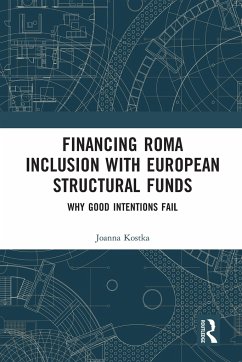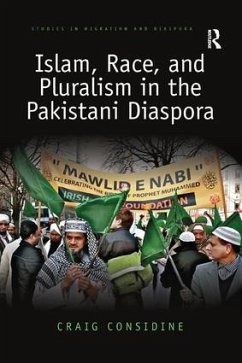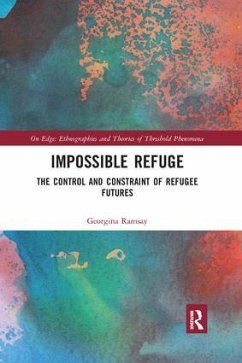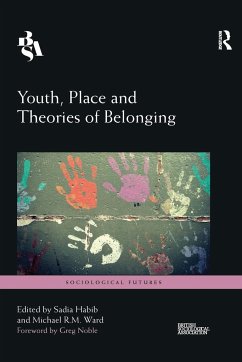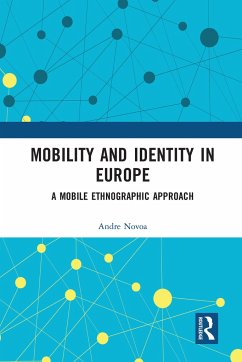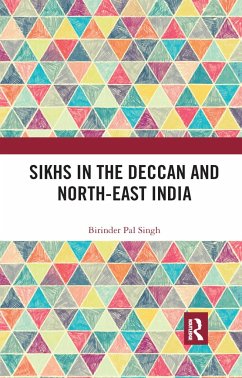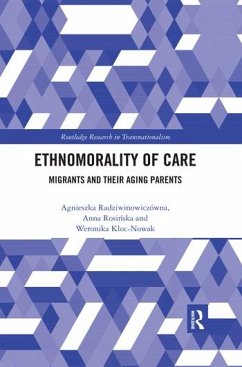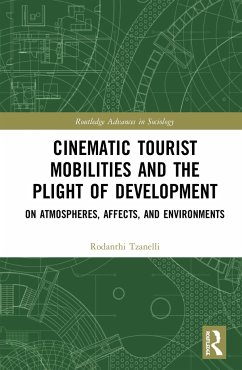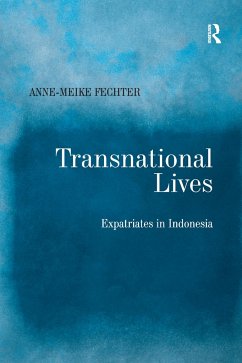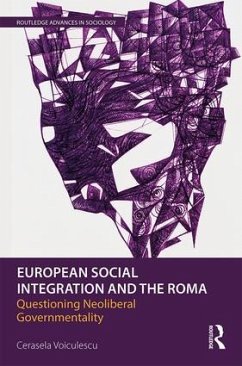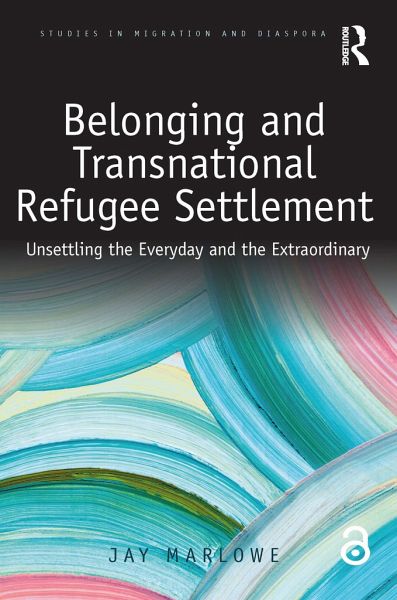
Belonging and Transnational Refugee Settlement
Unsettling the Everyday and the Extraordinary
Versandkostenfrei!
Versandfertig in 1-2 Wochen
59,99 €
inkl. MwSt.
Weitere Ausgaben:

PAYBACK Punkte
30 °P sammeln!
The image we have of refugees is one of displacement - from their homes, families and countries - and yet, refugee settlement is increasingly becoming an experience of living simultaneously in places both proximate and distant, as people navigate and transcend international borders in numerous and novel ways. At the same time, border regimes remain central in defining the possibilities and constraints of meaningful settlement. This book examines the implications of 'belonging' in numerous places as increased mobilities and digital access create new global connectedness in uneven and unexpected...
The image we have of refugees is one of displacement - from their homes, families and countries - and yet, refugee settlement is increasingly becoming an experience of living simultaneously in places both proximate and distant, as people navigate and transcend international borders in numerous and novel ways. At the same time, border regimes remain central in defining the possibilities and constraints of meaningful settlement. This book examines the implications of 'belonging' in numerous places as increased mobilities and digital access create new global connectedness in uneven and unexpected ways. Belonging and Transnational Refugee Settlement positions refugee settlement as an ongoing transnational experience and identifies the importance of multiple belongings through several case studies based on original research in Australia and New Zealand, as well as at sites in the US, Canada and the UK. Demonstrating the interplay between everyday and extraordinary experiences and broadening the dominant refugee discourses, this book critiques the notion that meaningful settlement necessarily occurs in 'local' places. The author focuses on the extraordinary events of trauma and disasters alongside the everyday lives of refugees undertaking settlement, to provide a conceptual framework that embraces and honours the complexities of working with the 'trauma story' and identifies approaches to see beyond it. This book will appeal to those with an interest in migration and diaspora studies, human geography and sociology.





